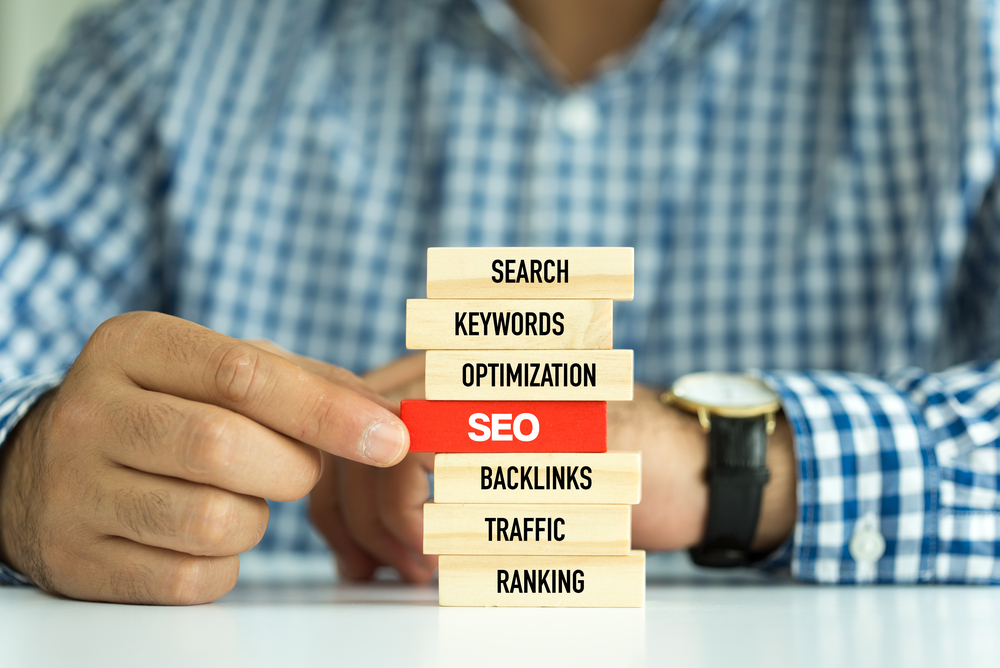
Boost Your Website's Visibility: Essential SEO & Link Building Tips

In today's digital age, having a strong online presence is crucial for the success of any business. With millions of websites vying for attention, it's vital to optimize your website's visibility to stand out from the crowd. This is where SEO (or SEM) (Search Engine Optimization) and link building come into play. By implementing effective SEO/SEM strategies and building high-quality links, you can improve your website's search engine rankings and attract more organic traffic. In this article, we'll explore some essential tips to boost your website's visibility and drive targeted traffic to your online domain.
What is SEM/SEO ?SEO (search engine optimization) refers to the practice of optimizing your website to improve its visibility on search engines like Google. When users search for keywords or phrases related to your business, you want your website to appear among the top search results. By implementing SEO techniques, you can increase your website's chances of showing up prominently on the search engine results pages (SERPs). This ultimately helps drive more organic traffic to your website, making SEO an integral part of any digital marketing strategy.
1. Conduct Keyword Research
Keyword research serves as the foundation of any successful SEO strategy. Start by identifying relevant keywords and phrases that your target audience is likely to search for. Use tools like Google Keyword Planner or SEMrush to find popular keywords with high search volumes. Once you have a list of targeted keywords, strategically incorporate them into your website's content, meta tags, headings, and URLs. However, ensure that your keyword usage is natural and does not compromise the readability or quality of your content.
2. Optimize On-Page Elements
On-page optimization plays a crucial role in determining your website's visibility. Make sure to optimize your page titles, meta descriptions, and header tags using your target keywords. These elements provide valuable information to search engine crawlers, helping them understand the relevance and context of your content. Additionally, optimize your website's URLs to ensure they are structured and descriptive. This not only helps search engines understand your website's content but also improves user experience and readability.
3. Create High-Quality Content
Content is the backbone of any successful SEO strategy. By creating high-quality, informative, and engaging content, you can attract both search engine crawlers and human visitors. When search engines determine that your content answers users' queries effectively, they are more likely to rank your website higher in the search results. Incorporate your target keywords naturally within your content, while ensuring it remains valuable and engaging to your audience. Regularly updating your website with fresh content also signals to search engines that your website is active and relevant.
4. Build High-Quality Backlinks
Link building is an essential aspect of SEO as it helps to establish your website's credibility and authority. High-quality backlinks from reputable websites act as a vote of confidence for your content and enhance your website's visibility. However, be cautious of low-quality or spammy backlinks, as these can harm your website's rankings. Seek opportunities to earn backlinks from reputable sources by creating valuable and shareable content, reaching out to industry influencers and bloggers, or guest posting on relevant websites. This gradual and organic approach to link building can significantly strengthen your website's reputation.
5. Enhance Website Speed and Mobile-Friendliness
In today's fast-paced world, users expect websites to load quickly and provide an optimal experience on both desktop and mobile devices. A slow-loading website can negatively impact user experience and increase bounce rates, leading to a decline in search engine rankings. Optimize your website's performance by minimizing file sizes, leveraging browser caching, and optimizing server response times. Additionally, ensure your website is mobile-friendly, with responsive design and fast-loading pages. With the majority of online searches occurring on mobile devices, mobile-friendliness has become a crucial ranking factor.
Frequently Asked Questions:
1. How long does it take to see results from SEO efforts?SEO is a long-term strategy, and the time it takes to see results can vary depending on various factors such as competition, industry, keyword difficulty, and the extent of optimization. It can take anywhere from a few weeks to several months before you see noticeable improvements in your website's visibility and organic traffic.
2. Are paid advertising and SEO the same?
No, paid advertising (such as Google Ads) and SEO are different strategies. Paid advertising involves paying for ad placements on search engine results pages, while SEO focuses on optimizing your website to improve organic (unpaid) search engine rankings. Both strategies have their benefits and can complement each other in a comprehensive digital marketing strategy.
3. Is link building still important for SEO?
Yes, link building remains an important aspect of SEO. While search engines consider numerous factors when ranking websites, backlinks from reputable sources continue to play a significant role in determining a website's authority, credibility, and visibility.
4. Should I focus on specific keywords or use a variety of them?
While it's important to identify and target specific keywords, it's also beneficial to use a variety of related keywords and phrases within your content. This helps search engines understand the breadth and depth of your content, making it more likely to match users' search queries and rank higher in the search results.
5. Can I handle SEO on my own, or should I hire a professional?
SEO can be complex and time-consuming, requiring continuous effort and staying updated with ever-changing algorithms. While some basic SEO practices can be implemented by website owners themselves, hiring a professional SEO agency or specialist can help ensure a comprehensive and effective SEO strategy, particularly if you lack the time or expertise in this field.
In conclusion, implementing effective SEO strategies and link-building techniques is essential for boosting your website's visibility and attracting targeted traffic. By conducting thorough keyword research, optimizing on-page elements, creating high-quality content, building reputable backlinks, and optimizing website speed and mobile-friendliness, you can improve your website's search engine rankings and increase its exposure to potential customers. Remember, SEO is an ongoing process, so stay committed and adapt your strategies as needed to stay ahead of the competition and achieve long-term success.
Other useful resources